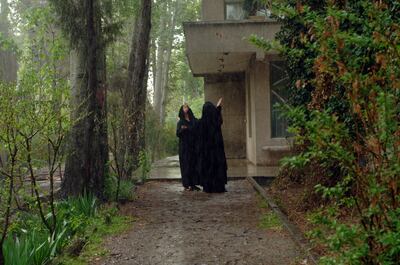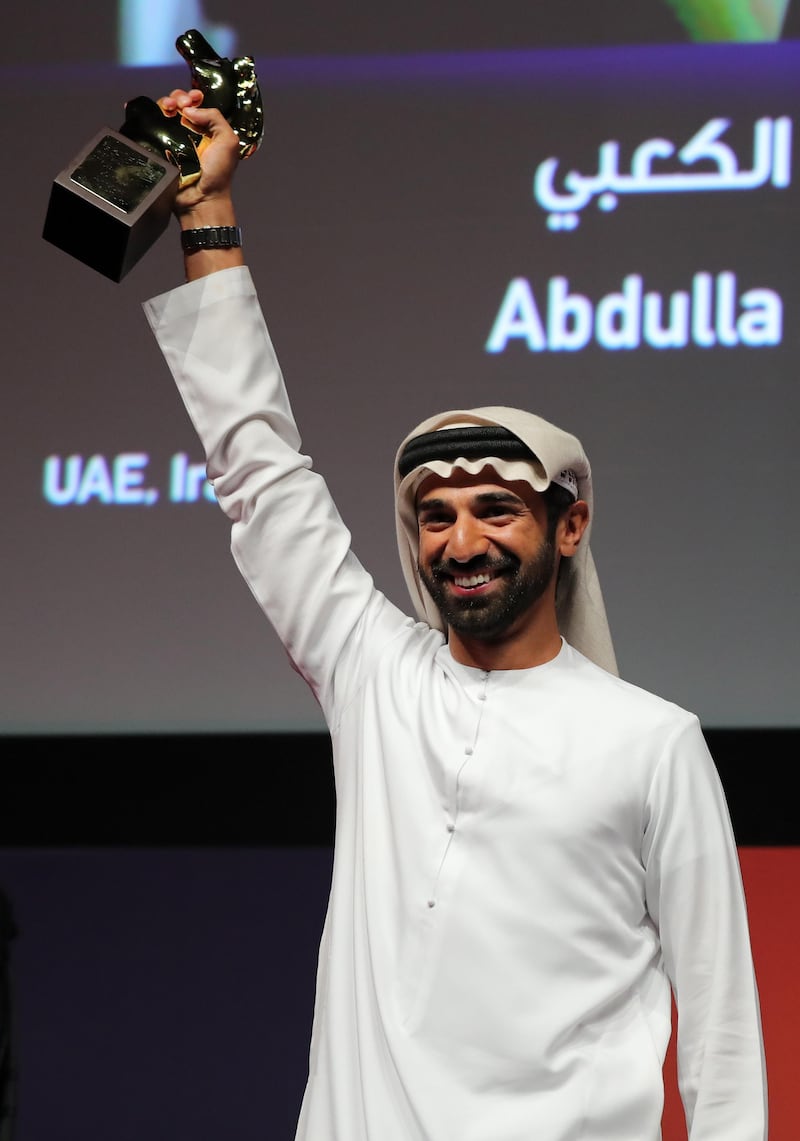Abdulla Al Kaabi isn't afraid to tackle complex issues. The director's latest movie, Only Men Go to the Grave, which won the Muhr Emirati award at last year's Dubai International Film Festival, seems designed to challenge expectations about Emirati filmmaking.
The movie, which goes on public release today as part of the Diff 365 initiative, is set in 1988 at the end of the Iran-Iraq War, and is inspired by the Arab communities of Iran's southern provinces, which Al Kaabi visited during pre-production research.
At the heart of the story is a family brought together to hear a great secret that the matriarch wants to pass on before she dies. Drama dictates that doesn't quite work out and in the absence of this revelation, a host of other buried truths come to the surface.
Gender, marriage and sectarianism have all played a role in the family's past, and Al Kaabi successfully addresses this complex history with sensitivity and humour – and without resorting to sensationalism.
These may be issues that are rarely discussed publicly, but Al Kaabi, who was previously best-known for casting Hollywood star Jean Reno in his 2010 short The Philosopher, insists he did not set out to be controversial.

"I didn't want to make a film to offend anyone," he says. "Who would set out to offend anyone? But I think people today want to see original content and stories. I want to do something new, a different perspective. I think that's what we all need to do as Emirati filmmakers – show things from a different perspective, and that's why I chose these themes of gender identity, transgenderism and alternative lifestyles; all these subjects that are regarded as off-limits. I think that's what made it one of the most-talked-about films of Diff."
Al Kaabi has a reliable litmus test for judging the level of controversy – his own mother and father.
"My parents came to the premiere and they had tears in their eyes," he says. "They were very proud. That was good enough for me."
Far from being divisive, Al Kaabi hopes his movie will unify audiences.
"Films can really bring people together," he says. "They help us to see past our differences because cinema only speaks one language, which is peace."
Al Kaabi worked on the film for almost five years, and says that even in that relatively short time frame, the UAE film industry has changed to almost unrecognisable levels.
At Diff in 2012, there wasn't a single feature-length film among the Muhr Emirati winners, but last year, Al Kaabi's film was up against five other features.
He says the rapid development in the industry is heartening, though he believes there is still room for improvement.
"I think we are still way behind when it comes to financing," he asserts. "There are all these initiatives here and there but they don't really add up.
"We really do need a national UAE film institute. A festival's role can go so far, but we need a national institute to bring everything together – at the moment there's no umbrella, just lots of unrelated satellites."
Al Kaabi also insists that the UAE needs to stop looking to the West for inspiration.
"I don't think there's any point in trying to have another Hollywood industry. Hollywood already does that, so why
would you want to copy it? Why make something that's already there?"
Instead, he says that the UAE needs to find its own voice on screen, and that doesn't necessarily involve importing Hollywood's capitalist model.
_____________________
Read more:
Emirati director's new animation, Catsaway offers lots of Abu Dhabi nostalgia
Emirati documentary Nanny Culture is on a film festival roll
American social media star hopes to showcase Emirati life in feature film
_____________________
"You can't build a film industry based solely on profit," he says. "It's great to make a profit, but that won't always happen and there needs to be space to make those films that won't make money. I much prefer to make movies that are original, art-house, beautiful – not just to sell. That's not to say those kind of films can't make money, too, but there has to be the space to make them."
Ironically, although Al Kaabi is vocal in his defence of non-profitable movies, his latest offering looks set to be one of the best-distributed UAE films of the year.
Only Men Go to the Grave has been picked up for region-wide distribution by Egypt-based Mad Solutions, one of the biggest distributors to film and TV in the Middle East.
Releases in all major regional markets, including Egypt, Tunisia, Jordan and Lebanon, will follow its UAE run.
It is also being touted as a potential UAE nominee for the Best Foreign Language Film at the Oscars.
Only Men Go to the Grave is in cinemas August 10





